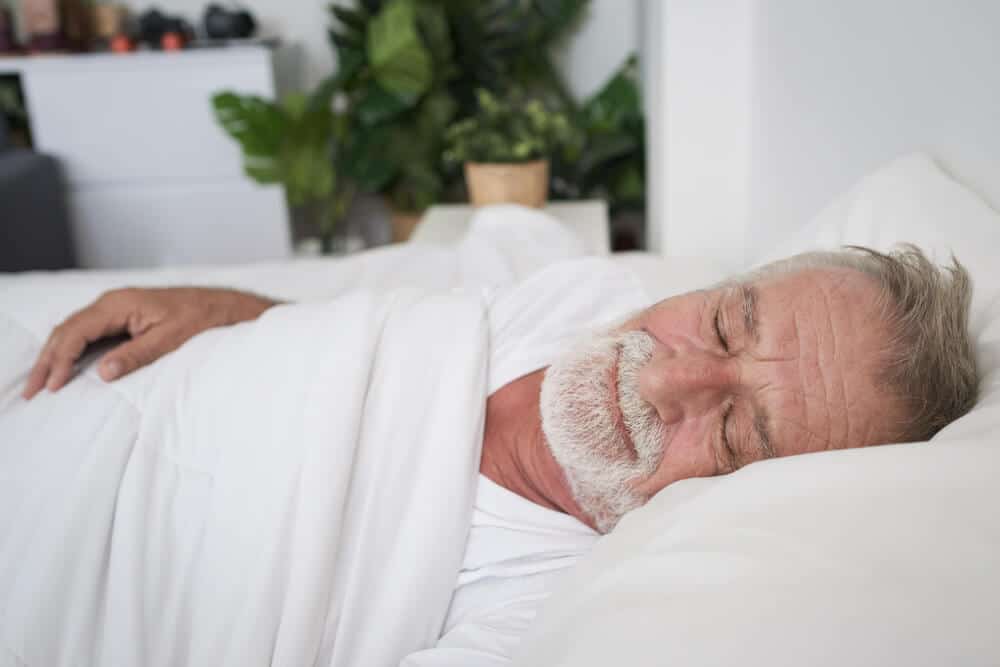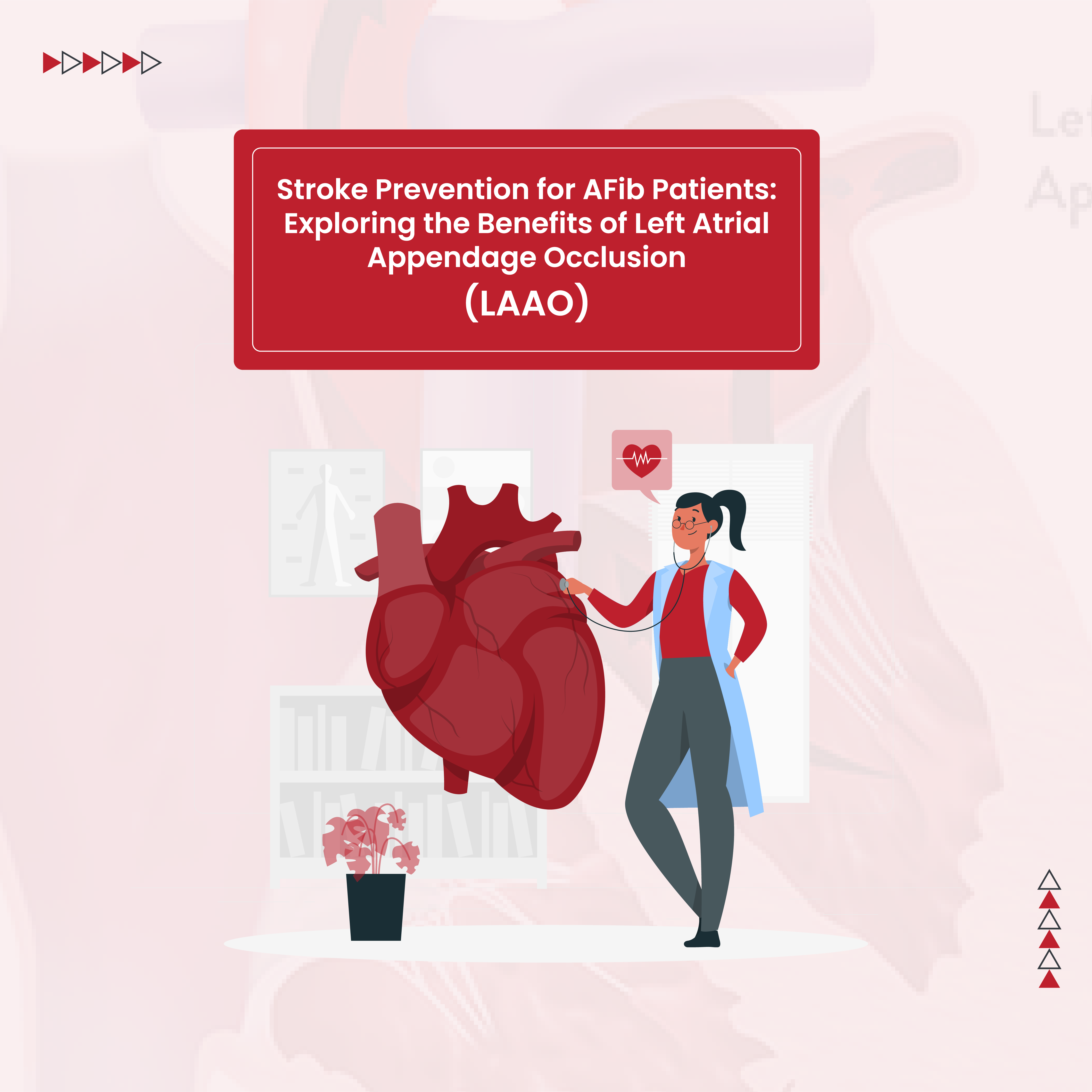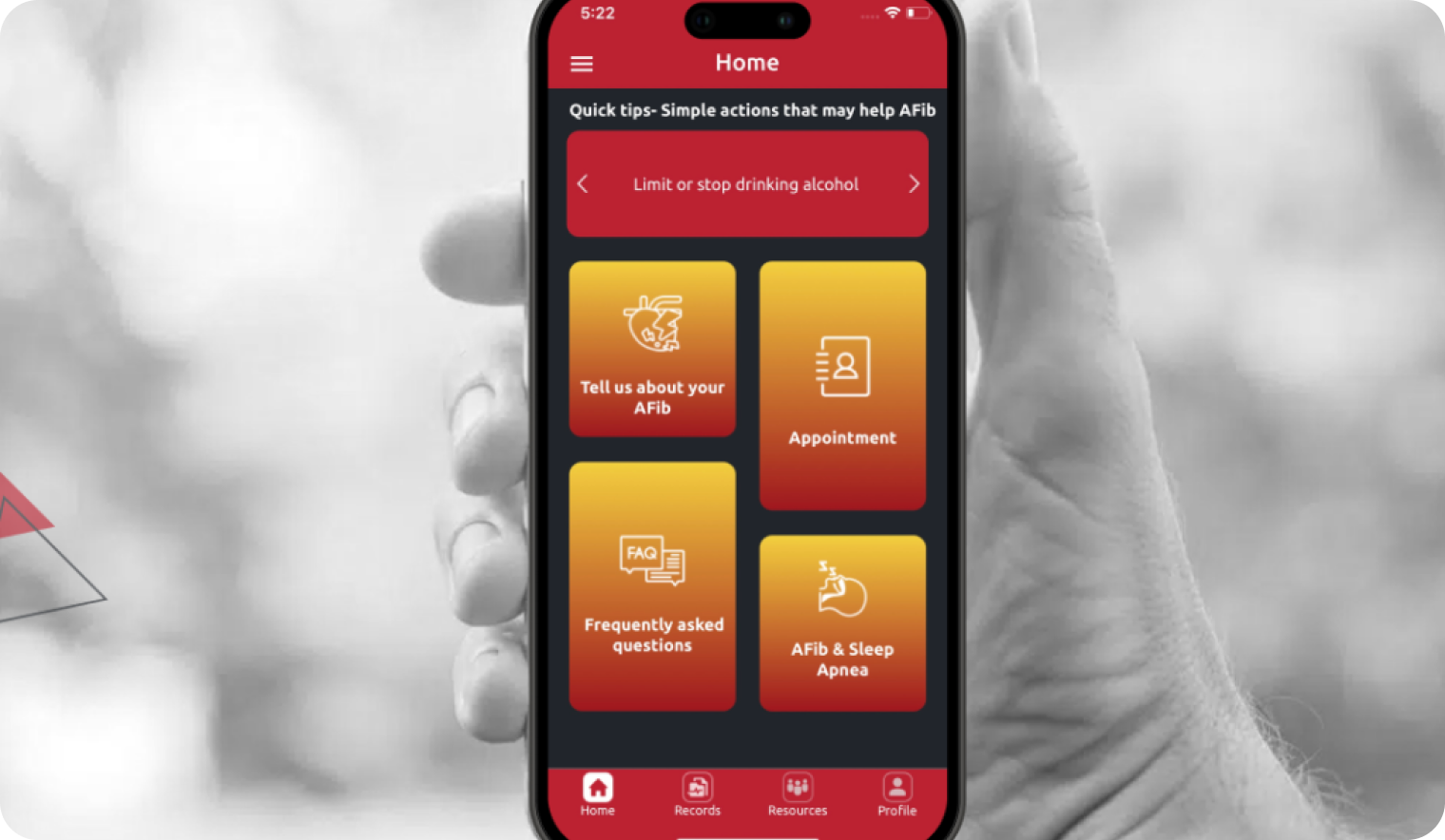Find out the best sleeping position for heart palpitation on this guide.
It’s been a long day. You are tired and finally climb into bed, ready for a good night’s sleep. But once again, you notice heart palpitations when lying down. Now you lie awake, worried that the irregular heartbeat when lying down means there is something wrong with your heart.
Does this sound like you? Have you noticed your heart racing at night? Do you have an ‘atrial fibrillation sleep position’ that always seems to make your AFib worse? Do you get a weird feeling in your chest when lying down?
If so, you are not alone. Heart palpitations when lying down are very common. Palpitations are typically harmless and an occasional palpitation is nothing to worry about. It is normal to be more aware of heart palpitations when lying down because it is quiet and there are fewer distractions. Also, it is common for heart palpitations to be more noticeable when you lie in certain positions, such as lying on your left side.
What Are Heart Palpitations?
Heart palpitations are the feeling that the heart is beating too fast, skipping beats, or pounding. Heart palpitations are frequently triggered by stress, exercise, or certain medications. Palpitations in the absence of other symptoms are generally not a cause for concern.
However, if the palpitations are accompanied by other symptoms such as chest pain, severe shortness of breath, or passing out you should seek emergency medical care. If the heart palpitations are continuous, lasting for more than a few minutes or your heart rate suddenly accelerates and seems to take off without you this can be a sign of an underlying abnormal heart rhythm (arrhythmia) such as supraventricular tachycardia (SVT) or atrial fibrillation (AFib). Heart palpitations that awaken you from sleep may be a sign of sleep apnea or a heart problem. However, the sensation of heart palpitations is not always related to an irregular heartbeat or an abnormal heart rhythm. Sometimes people feel like they are having heart palpitations but the heart rhythm itself is completely normal.
There are a number of ways that people describe heart palpitations including:
- ‘Flipping’, ‘flip-flop’ or ‘fluttering’ sensation in the chest.
- Strong heartbeat which is followed by a slight pause.
- Sensation that the heart is racing
- Pounding or sensation of fullness in the neck, throat or chest
- Skipped beats
What Causes Heart Palpitations?
Common causes of heart palpitations include:
- Stress, anxiety, panic attack, depression
- Fever
- Vigorous exercise
- Caffeine
- Smoking cigarettes or using other nicotine containing products
- Certain medications like some asthma inhalers and over the counter cold medications containing pseudoephedrine
- Recreational drugs like methamphetamine and cocaine
- Hormones, especially around the time of menstruation, pregnancy or menopause
- Thyroid problems
Occasionally, heart palpitations are caused by an abnormal heart rhythm or other heart problems. If you go to your doctor with concerns about heart palpitations, your doctor will ask you about the timing and nature of the palpitations to try to identify an underlying cause. Depending on how your palpitations are presenting, your doctor may order blood work, an electrocardiogram (ECG), a heart monitor, or an ultrasound of the heart (echocardiogram).
How To Stop Heart Palpitations?
If a cause for heart palpitations is found, medical treatment may be required. However many times, there is no underlying medical condition that needs to be treated. In this case, some healthy lifestyle and home remedies for heart palpitations include:
- Minimize caffeine before bed. Caffeine is a stimulant and can contribute to palpitations for some people. Try cutting back on your caffeine intake and do not drink caffeinated beverages after 4 PM.
- Stress management. Meditation, yoga, and deep breathing exercises are excellent tools for reducing stress which can help calm the heart’s electrical system and decrease palpitations.
- Avoid Alcohol. Alcohol irritates the heart’s electrical system, is dehydrating and can cause electrolyte imbalances; all of which can cause heart palpitations. Drinking less than 2 drinks per day for males and 1 drink per day for females is recommended to help minimize the negative effects of alcohol on the heart.
- Stay hydrated. Dehydration can cause electrolyte imbalances and increase palpitations. Many people do not drink enough water. This is especially problematic as people age because our natural thirst drive decreases with age. It is recommended that most people drink between 2 to 3 liters of water per day.
- Avoid Stimulants. Nicotine, certain over the counter cold preparations and recreational drugs like cocaine and methamphetamine are stimulants and can cause heart palpitations.
Why Does My Heart Race When I Lay Down?
Sometimes heart flutters are more noticeable when lying down at night because it is quiet and there are fewer distractions. In addition, as the body prepares for sleep the parasympathetic nervous system becomes more active. The parasympathetic nervous system is the part of the nervous system which is responsible for rest and regulation. One function of the parasympathetic nervous system is to slow the heart rate down. For some people, this slowing of the heart rate can trigger AFib and heart palpitations when lying down.
What Side To Lay On For Heart Palpitations?
Heart palpitations may be especially noticeable when you lie on your left side. This is because the heart is on the left side of the chest and when lying on the left side the heart is closer to the chest wall. This physical closeness makes skipped and therefore skipped beats may be easier to feel. If you notice heart palpitation when lying down, try lying on your right side to see if this helps.








